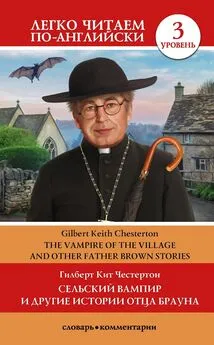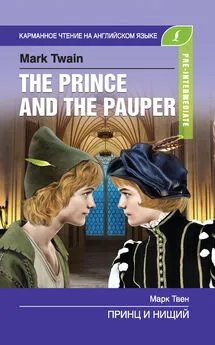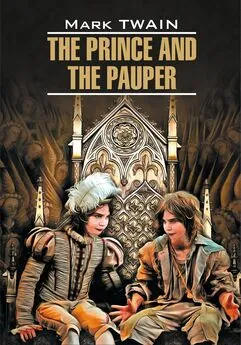Oscar Wilde - The Happy Prince and Ohter Tales
- Название:The Happy Prince and Ohter Tales
- Автор:
- Жанр:
- Издательство:неизвестно
- Год:неизвестен
- ISBN:нет данных
- Рейтинг:
- Избранное:Добавить в избранное
-
Отзывы:
-
Ваша оценка:
Oscar Wilde - The Happy Prince and Ohter Tales краткое содержание
The Happy Prince and Ohter Tales - читать онлайн бесплатно полную версию (весь текст целиком)
Интервал:
Закладка:
“‘Who is there?’ cried the Doctor, putting his head out of his bedroom window.
“‘Little Hans, Doctor.’
“’What do you want, little Hans?’
“‘The Miller’s son has fallen from a ladder, and has hurt himself, and the Miller wants you to come at once.’
“‘All right (хорошо) !’ said the Doctor; and he ordered his horse (и он приказал /подать/ его лошадь) , and his big boots (и его большие сапоги; boot — ботинок, башмак) , and his lantern (и его фонарь) , and came downstairs (и спустился вниз) , and rode off in the direction of the Miller’s house (и ускакал: «уехал верхом» в направлении дома Мельника; to ride (rode, ridden) — ехать, ездить верхом, скакать) , little Hans trudging behind him (а маленький Ганс поплелся позади него; to trudge — идти с трудом, устало, тащиться) .
“But the storm grew worse and worse (а буря становилась все сильнее и сильнее: «хуже и хуже»; to grow (grew, grown), to grow worse — ухудшаться) , and the rain fell in torrents (и дождь лил как из ведра: «падал потоками»; to fall (fell, fallen), torrent — стремительный поток, torrents — ливень) , and little Hans could not see where he was going (и маленький Ганс не видел: «не мог видеть», куда он шел) , or keep up with the horse (и не поспевал: «/не мог/ поспевать» за лошадью /доктора/; to keep up (with) — держаться на прежнем уровне, не отставать) . At last he lost his way (в конце концов он сбился с пути: «потерял свою дорогу»; to lose (lost) — терять, не находить) , and wandered off on the moor (и заблудился на болоте; to wander — бродить; заблудиться) , which was a very dangerous place (которое было очень опасным местом) , as it was full of deep holes (и там было много: «оно было полно» глубоких ям; full — полный, наполненный; hole — дыра; яма) , and there poor little Hans was drowned (и там-то и утонул бедный маленький Ганс; to drown — тонуть, топить) . His body was found the next day (его тело было найдено на следующий день; to find (found) ) by some goatherds (несколькими пастухами: «козопасами»; goat — козел, коза, herd — стадо; диал. пастух) , floating in a great pool of water (/тело было найдено/ плавающим в большой луже с водой; to float — плавать, держаться на поверхности) , and was brought back by them to the cottage (и было принесено ими /пастухами/ назад к его хижине; to bring (brought)) .
torrent ['tOrənt ] moor [mυə ] dangerous ['deindζərəs ] drowned[draυnd ]goatherd ['gəυthə:d ]
“‘All right!’ said the Doctor; and he ordered his horse, and his big boots, and his lantern, and came downstairs, and rode off in the direction of the Miller’s house, little Hans trudging behind him.
“But the storm grew worse and worse, and the rain fell in torrents, and little Hans could not see where he was going, or keep up with the horse. At last he lost his way, and wandered off on the moor, which was a very dangerous place, as it was full of deep holes, and there poor little Hans was drowned. His body was found the next day by some goatherds, floating in a great pool of water, and was brought back by them to the cottage.
“Everybody went to little Hans’ funeral (все: «каждый» пошли на похороны маленького Ганса; to go (went, gone) ), as he was so popular (потому что его так любили; popular — народный; популярный, пользующийся известностью, популярностью) , and the Miller was the chief mourner (и Мельник выступал в роли самого близкого друга, оплакивавшего Ганса: «и Миллер был самым близким родственником умершего, присутствующим на похоронах»; to mourn — оплакивать, скорбеть, mourner — плакальщик, человек, присутствующий на похоронах, chief — главный, старший) .
“‘As I was his best friend (так как я был его лучшим другом) ,’ said the Miller, ‘it is only fair (это чрезвычайно: «только» справедливо; fair — честный, справедливый) that I should have the best place (что я должен занять самое лучшее место) ’; so he walked (и поэтому он шел) at the head of the procession (во главе процессии) in a long black cloak (в длинном черном плаще) , and every now and then (и, время от времени: «каждый /раз/ теперь и тогда) he wiped his eyes (он вытирал свои глаза) with a big pocket-handkerchief (большим носовым платком; pocket — карман) .
“‘Little Hans is certainly (/смерть/ маленького Ганса это, несомненно) a great loss to every one (огромная потеря для каждого) ,’ said the Blacksmith (сказал Кузнец) , when the funeral was over (после похорон: «когда похороны были окончены») , and they were all seated comfortably in the inn (и все они уютно: «удобно» сидели в трактире; to be seated — сидеть, to seat — сажать, усаживать; inn — гостиница; ист. постоялый двор, трактир) , drinking spiced wine (попивая сдобренное специями вино; spice — специя, пряность) and eating sweet cakes (и поедая сладкие кексы; to eat — есть, поедать, cake — торт, сладкий пирог) .
mourner['mO:nə ] procession[prə'se∫(ə)n ] handkerchief ['hæŋkət∫if ]blacksmith['blæk"smiθ ] funeral['fju:n(ə)rəl]
“Everybody went to little Hans’ funeral, as he was so popular, and the Miller was the chief mourner.
“‘As I was his best friend,’ said the Miller, ‘it is only fair that I should have the best place’; so he walked at the head of the procession in a long black cloak, and every now and then he wiped his eyes with a big pocket-handkerchief.
“‘Little Hans is certainly a great loss to every one,’ said the Blacksmith, when the funeral was over, and they were all seated comfortably in the inn, drinking spiced wine and eating sweet cakes.
“‘A great loss to me at any rate (огромная потеря для меня, во всяком случае) ,’ answered the Miller (ответил Мельник) ; ‘why, I had as good as given him my wheelbarrow (ба, да я почти что подарил ему мою тачку; as good as — в сущности, фактически, to give (gave, given)) , and now I really don’t know (а теперь я, право, не знаю) what to do with it (что с ней делать) . It is very much in my way at home (дома она очень сильно мне мешает: «/находится/ на моем пути»; be in the way — путаться под ногами, являться препятствием чему-либо) , and it is in such bad repair (и она в таком плохом состоянии; repair — ремонт; годность, исправность) that I could not get anything for it (что я не смог бы получить за нее хоть что-нибудь) if I sold it (если бы я ее продавал; to sell (sold) ). I will certainly take care (я обязательно позабочусь /о том/; to take care — быть осторожным, заботиться) not to give away anything again (чтобы впредь больше ничего не дарить; to give away — отдавать, дарить) . One always suffers (всегда страдаешь) for being generous (за свое благородство/щедрость; generous — великодушный, благородный) .’”
repair [ri'peə ] care [keə ] suffer ['sλfə ] generous ['dζen(ə)rəs]
“‘A great loss to me at any rate,’ answered the Miller; ‘why, I had as good as given him my wheelbarrow, and now I really don’t know what to do with it. It is very much in my way at home, and it is in such bad repair that I could not get anything for it if I sold it. I will certainly take care not to give away anything again. One always suffers for being generous.’”
“Well (ну) ?” said the Water-rat, after a long pause (сказала Водяная Крыса после долгой паузы) .
“Well, that is the end (все, это и есть конец /истории/) ,” said the Linnet (сказала Коноплянка) .
“But what became of the Miller (а что же случилось с Мельником; to become (became, become) — делаться, становиться; случаться) ?” asked the Water-rat (спросила Водяная Крыса) .
“Oh! I really don’t know (ах, я, право слово, и не знаю) ,” replied the Linnet (ответила Коноплянка; to replay) ; “and I am sure that I don’t care (и я уверена, что мне все равно; to care — заботиться; любить, питать интерес к чему-либо, кому-либо) .”
Читать дальшеИнтервал:
Закладка:
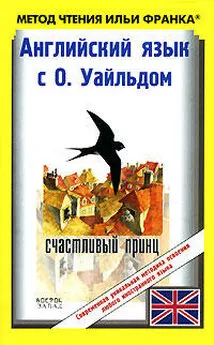
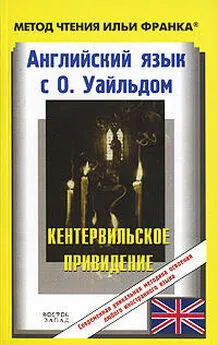
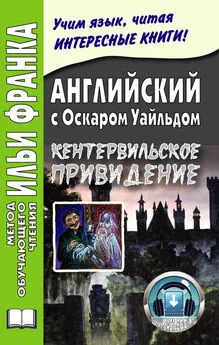
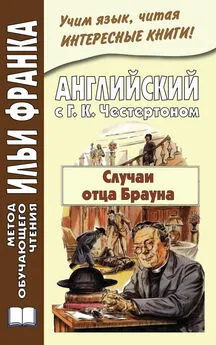
![О Генри - Принцесса и пума [The Princess and the Puma]](/books/1076182/o-genri-princessa-i-puma-the-princess-and-the-pum.webp)
